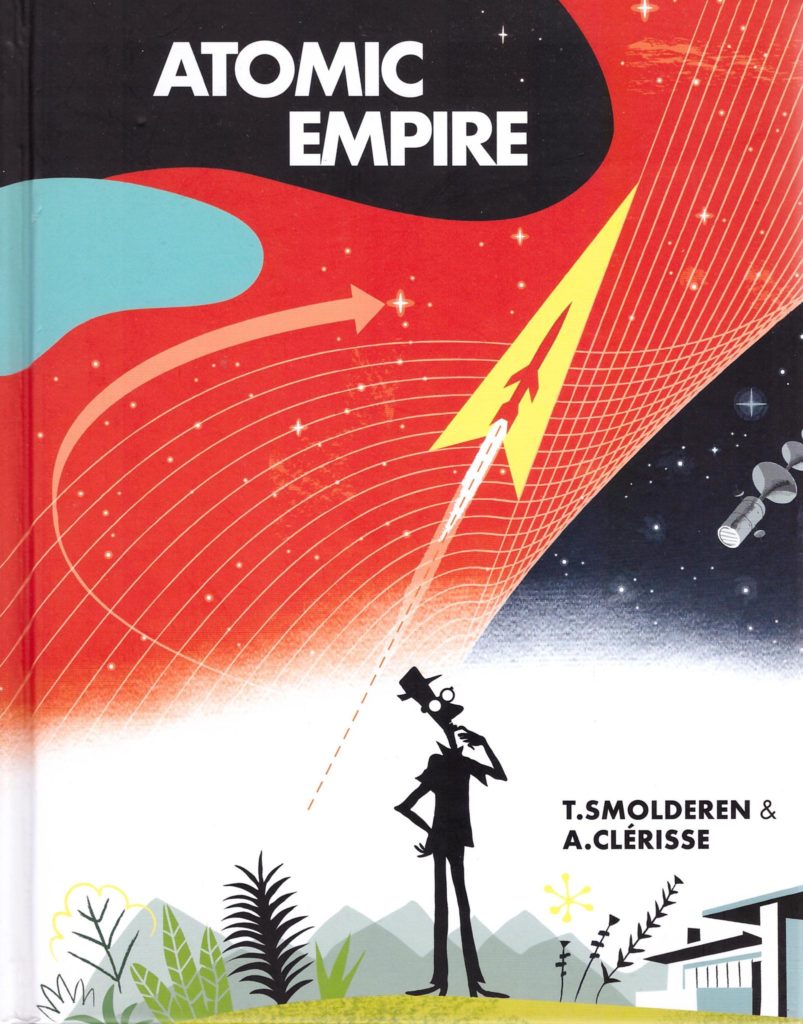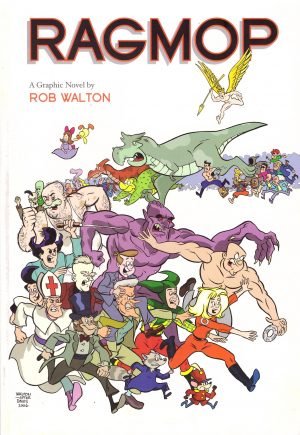Review by Ian Keogh
Atomic Empire combines psychoanalytical study with science fiction to present what’s an adventure employing the fears of the 1950s to a remarkable end, while also remaining grounded with touching moments.
From childhood Paul has been telepathically communicating with Zarth Arn from the future, and through this communication is tasked with producing charts and star maps corresponding to humanity’s expansion through the universe. Is he a deluded fantasist or this real? Thierry Smolderen takes his inspiration from ‘The Jet Propelled Couch’ in The Fifty Minute Hour, Robert Lindner’s psychoanalytic recollections, acknowledging the source and using therapy sessions with a Dr. Jensen analysing Paul’s past. Paul’s knowledge is expanded by SF pulp magazines, the stories in them consistent with what he knows of the future.
Smolderen supplies an immediately captivating premise, but it’s the instant and immense appeal of Alexandre Clérisse’s poised cartooning that sells Atomic Empire before a page is read. Everything is so beautifully rendered in a retro animation style to which imaginative design is all important. Clérisse sweeps in the futuristic ornamentation of the 1950s, in effect now a nostalgic look at the future, and applies an elegance to his people and places, making every single panel one to look at in awe. He mixes vibrant colour with panels created in a grey wash, uses lovely little motion squiggles and imposing silhouettes, mixes standard suits with exotic costumes, fills spaces with abstract sculptures… Everything is so perfectly created. Toward the end a number of conflicting art styles are called for, and Clérisse mixes and matches them wonderfully.
Another psychotherapy technique plays a large part in what develops into deceit, manipulation and betrayal, Smolderen slipping in a few homages along the way. Paul’s experiences jump back and forth through time, the non-linear storytelling designed to mimic his disorientation, and to make the reader wonder throughout whether the likeable Paul is deluded. Everything that occurs is funnelled toward a clever and tidy conclusion, bringing matters back full circle to the opening pages in 1964. It’s an ambiguous ending, in keeping with the intelligent tone throughout, and also tying in nicely with the eventual outcome for Lindner’s original patient, as Smolderen through Paul casts the reader as the inquisitive psychotherapist.
Atomic Empire is a delight from the moment the cover is opened, and Smolderen and Clérisse renew their collaboration with a 1960s period piece Diabolical Summer.





